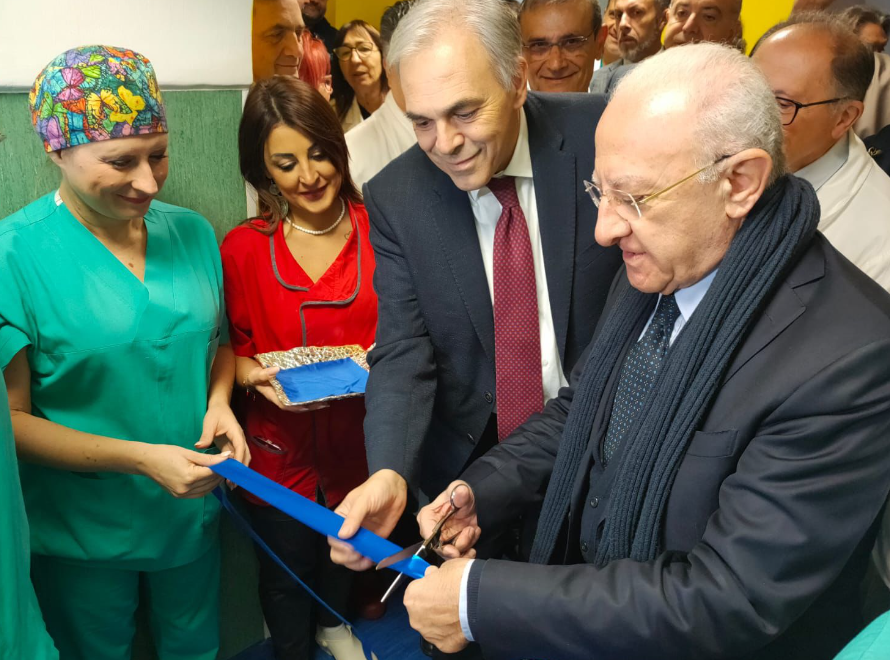Inaugurated yesterday, they will come into operation on November 25th. Removed the doors, changed the floors, eliminated the risky irregularities Nasthe new ones were opened yesterday morning his operation dell’hospital of Eboli.
The “block”
Fernando Chiumientodoctor and director ofAslexplains: “There are four new operating rooms, which will guarantee patient safety. The investment is 11 million euros. The operating block was built in the ancient part of the hospital, where there was the 14th century monastery. The operating center provides differentiated paths, with modern technologies. The operating tables are multidisciplinary. Any surgery, orthopaedics, ENT, ophthalmology or urology operation can be carried out on each of them. Then there is an area for the post-operative period, where the patient who will no longer go there will be accommodated Resuscitation». The president of Campania region, Vincenzo De Lucaturns towards the mayor Mario Conte and shows him the operating table: «It might be useful to you, you’re lucky». Conte begs. Laughter in the room. Fixed the problem with the elevators, the operating rooms will become operational.
+++THE COMPLETE ARTICLE IN TODAY’S EDITION OF THE PAPER NEWSPAPER+++
#Eboli #operating #rooms #inaugurated
–
Question 1: Dr. Chiumiento, as the director of ASL, could you please tell us more about the new operating rooms that were inaugurated yesterday? How will these four new operating rooms benefit patients in Ebola Hospital, and what kind of surgeries can be performed in them? Can you also elaborate on the safety measures that have been implemented to prevent any potential risks?
Question 2: Mr. President, as the regional leader, what is your perspective on the importance of these new operating rooms for the healthcare system in Ebola Hospital? How do you feel about the investment made in modernizing the healthcare facilities, and what impact do you think it will have on the quality of care provided to patients?
Question 3: Both guests, could you discuss the challenges involved in converting the ancient monastery into an operating block? What were some of the logistical difficulties you faced during this process? How does incorporating a 14th-century structure into a modern medical facility impact the overall design and function of the space?
Question 4: Dr. Chiumiento, could you elaborate on the ”differentiated paths” and “modern technologies” mentioned in the operating center? How do these differ from traditional operating rooms, and what benefits do they offer to surgeons and patients alike?
Question 5: Mr. President, what role did local government play in ensuring the successful inauguration of these new operating rooms? Can you describe any other ongoing projects or initiatives aimed at improving healthcare infrastructure in Ebola Hospital or throughout Campania region?
Question 6: Both guests, do you have any final thoughts or messages you’d like to share with our readers regarding the significance of these new operating rooms and the impact they will have on healthcare in Ebola Hospital and potentially beyond?


